NSW nurses strike in Lismore for equality with other states
Nurses from across northern NSW walked off the job in opposition to the lip service they say they’ve been receiving from the NSW government.
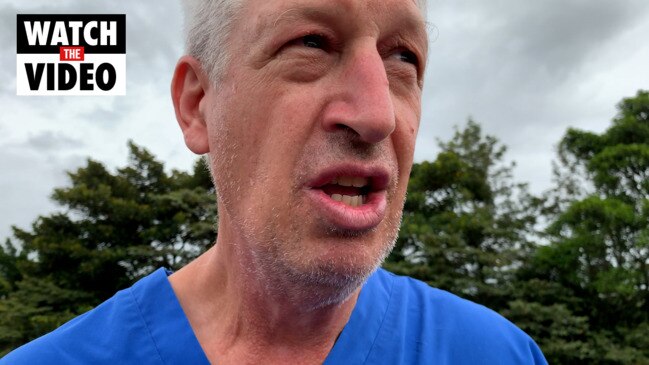
Lismore
Don't miss out on the headlines from Lismore. Followed categories will be added to My News.
Nurses from the Clarence Valley to the Tweed converged on Spinks Park in Lismore to protest conditions they say are putting lives in danger.
Lismore Base Hospital branch secretary of the NSW Nurses and Midwives’ Association, Gil Wilson, said Tuesday’s protest was about increasing staff, retaining grad students, effective patient care and better conditions for nurses to keep patient care at safe levels.
“I’m 32 years into this now,” he said.
He said if the government didn’t help with easing burdensome workloads and initiate incentives to attract and retain staff it was getting to a point where the job was “crushing”.
His Clarence Valley counterpart, branch president Darren Demmery, said he was in Lismore to support everyone around the state.
“We really need ratios,” he said.
“We’ve got too many nurses doing overtime, 15-20 shifts a fortnight.”
He said it was unsustainable and someone was going to get hurt.
He hopes to get more staff on the floor, pay that values their work, and recognition for what they do.
“The government is trying to cancel our compensation claims for Covid through the Industrial Relations Commission and if they take that away from us it means because most of us just go to work and aren’t out in the public, if we get Covid there is no more Covid-leave for us,” he said.
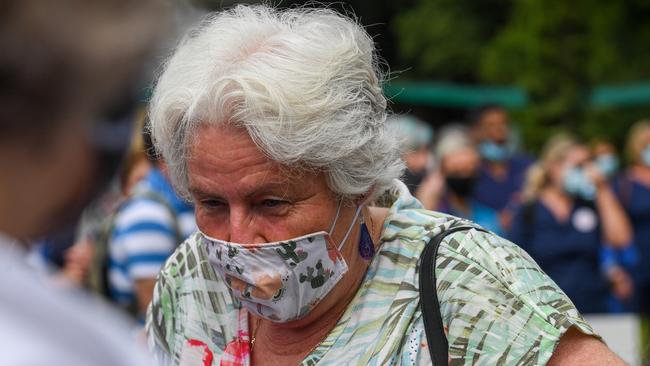
Lismore Base Hospital nurse Anne Marie said she was trying to ensure nurses were given safe working ratios and adequate pay to keep their patients safe.
The 42-year veteran said patients had been banked up and staff had been doing double overtime.
“We want to get some recognition for some staff ratios that are safe so that we can provide adequate care for our patients,” she said.
“So we can do all the things our patients need to make sure they are safe and well looked after because at the moment we can’t.”
Nurses from Ballina hospital who wished to remain anonymous said they were sick of doing overtime to support a system that didn’t work.
“We’re tired and we’re sick of it,” one nurse said.
He said managers were not listening and their recruitment process took “forever”.
“The whole health system is basically being run on overtime,” he said.
Grafton Hospital nurse Charity Summers said the extra demands were having an impact.
“We’re doing overtime on overtime and yeah, we’re buggered,” she said.
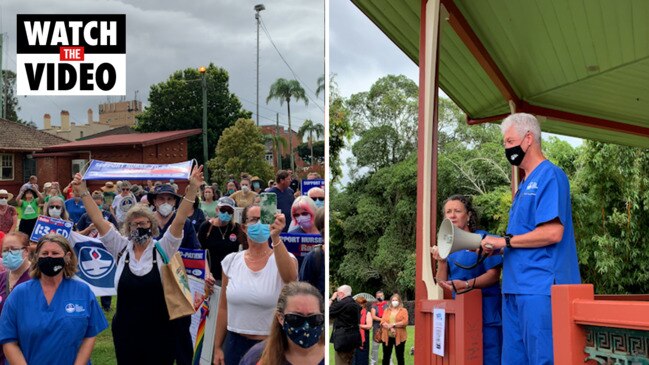
Nurses and Midwives’ Association Tweed branch president Kristin Ryan-Agnew said Tweed Hospital was in a “dreadful position”.
“Decisions made in Sydney have had no thought for our regional areas,” she said.
“Tweed triples its population this time of year simply from tourism and with the closed borders we’ve had such a massive increase in population waiting to get back across those borders.”
She said the extra demand had not been catered to in staff numbers and nurses were exhausted.
“They’re doing doubles, having one day off and coming back and doing another (double shift),” she said.
Ms Ryan-Agnew said they have lost a lot of staff to Queensland.
“People need to be made aware of how much staff we are losing,” she said.
“You can’t run a hospital with no nurses.”
She said the concerns were spread across all staff.
“It’s the paramedics, it’s the wardies, we want the public to know how bad it is,” she said.
“We are not coping.
“The government has got to stop saying we are coping because we are not.”
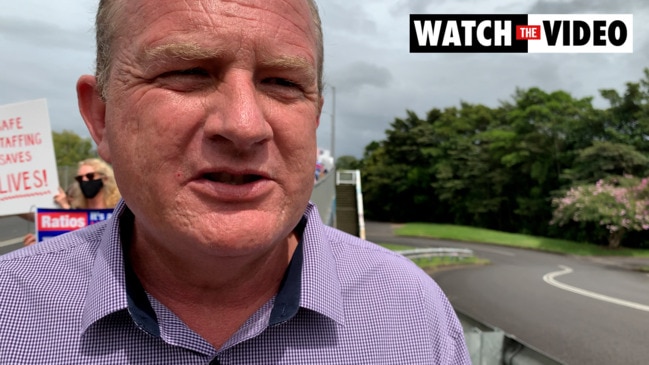
Tweed Hospital theatre nurse Patricia Attard said staff were being pulled in too many directions all at once.
“All we want is to be able to give good quality care to our patients for a decent, fair pay,” she said.
Many nurses raised work-life balance issues as well as conditions, pay and having enough staff to safely care for patients.
“Currently I’m on a rostered 52 hour week including being on call,” Ms Attard said.
“A colleague of mine did 58 hours plus four on calls this week alone when usually our roster is 40 hours.”
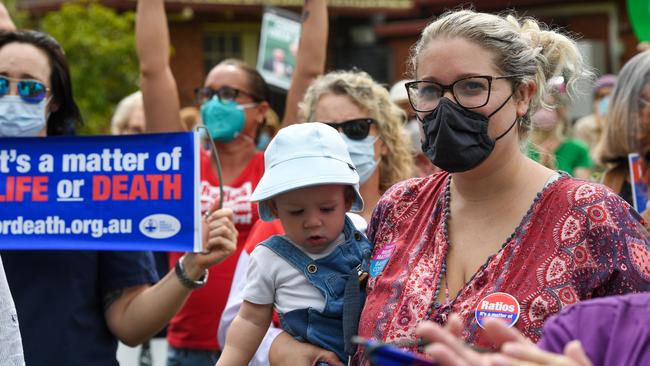
She said the wheels were falling off.
“We want to care for our patients and do it well,” she said.
“We are educated, trained and skilled, but they’re not letting us supply that skill.”
Ms Attard said staff were being forced to cut corners and their young staff were burnt out already.
“They want to work less hours – they’re only just starting out.”




